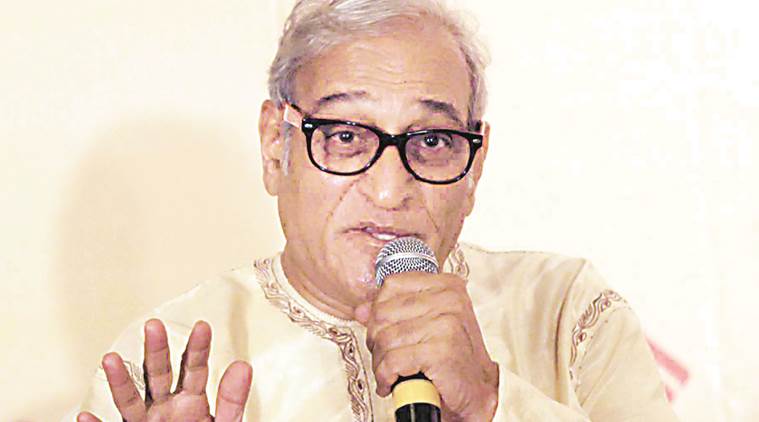 The institute needs to have a clear vision to identify the road map ahead. As far as possible, it should be independent of the government, says veteran actor Mohan Agashe (File Photo)
The institute needs to have a clear vision to identify the road map ahead. As far as possible, it should be independent of the government, says veteran actor Mohan Agashe (File Photo)
Veteran film and theatre actor, Dr Mohan Agashe, 71, will receive the prestigious Vishnudas Bhave Award at a function on November 5 at Sangli. He will be honoured for his immense contribution to the field of theatre and cinema. In an interview with The Indian Express, Agashe says “films are not just emotion laxatives. They need to make people think.’’
Acharya Atre, Dilip Prabhavalkar and several others have received the prestigious Vishnudas Bhave Award. What is your reaction on being chosen as a recipient?
Vishnudas Bhave is the founder of Marathi theatre. While there is appreciation about various awards and prizes, one is, however, pleased when certain awards are bestowed. Organisers have maintained the dignity of this award. This is the 53rd year that the award is being presented and eminent personalities like Bal Gandharva and P L Deshpande have been the recipients. I really feel humbled to receive this award.
A psychiatrist and actor, you have left an indelible mark, be it through compelling performances, innovative theatre or significant health projects. Please recount some unforgettable moments.
There have been several such moments, specially the play Ghashiram Kotwal. Having played the same role for 20 years, it gave me the opportunity of detailing this character and the experience has been heartwarming. The play started as an experiment and went on to become a landmark. Not only were the rehearsals enjoyable, but the play was instrumental in broadening my horizons — both as an actor and a doctor. We had 61 shows at international entertheatre festivals in Western and Eastern Europe, the US and Russia and I took the opportunity to visit the best psychiatric institutions at the places we performed.
As a founder of Maharashtra Institute of Mental Health (MIMH) and also advisor to the government on mental health issues, what, according to you, are the crucial issues that need to be addressed?
Caregivers play an important role in dealing with persons who have mental health issues. One of the aims at MIMH was also to generate human resource of non-medical health professionals, who could bear the major burden of care giving. Hence, their training was important. Please understand that all mental health problems are not severe enough to warrant the attention of a medico, but again they are not that minor to be ignored. The psychological distress needs to be addressed and so, caregivers are important in this context. Earlier, the joint family system ensured that there were different personalities in the same household, who could be relied upon to act as emotional shock absorbers. Today, we have help and support groups.
Depression, Alzheimer’s disease and other mental health issues have been dealt with in the films you made and acted in, such as Kaasav, Astu and others. What prompted you to take up this challenge?
While there is nothing wrong in making films that are entertaining, what is also important is the content. Films are not just emotional laxatives. They should also make people think, find solutions. Often, the authenticity of the information is compromised so that it is entertaining to the audience. Another harsh reality is that there are distributors, who want to make their money, and believe it or not, but there are several who have not even seen these films. Making films that are socially relevant, drive home a message and make people think is important. Of late, I have really enjoyed attending private film screenings, where questions are generated at the end and the discussions are so fruitful.
You have essayed the role of Dr Bhagwat in the play Jara Samjhun Ghya that deals with deteriorating doctor-patient relations. The topic is extremely relevant due to increasing cases of violence against doctors. What is the solution?
The play is set up as a talk show for 90 minutes and deals with the current state of medical practice. It does not take sides. The message simply is let’s introspect and decide. Sadly, over the years the sacrosanct doctor-patient relationship has degenerated to that of a prosecutor-defendant one. Hence, the play looks at the changing dynamics of the doctor-patient relationship. Basically ethics, morals, corporatisation of health services delivery, doctors’ relations with pharma companies and how technological innovations cannot substitute humanity in medicine are discussed.
As a former director, what do you think of the strikes and controversies that have dogged the FTII?
The institute needs to have a clear vision to identify the road map ahead. As far as possible, it should be independent of the government. There should be a long-term plan, where both the chairman and director are on the same page. For instance, look at the Inter University Centre for Astronomy and Astrophysics set up by Prof Jayant Narlikar. He had a vision and has been associated with the institute’s progress for a long time. At FTII, on the contrary, there have been times when the director’s post has been vacant or there is no governing council chairman. Again, the director’s post is such that, like the civil services system, a new person is appointed every three years. Basically, the government cannot use them as sacrificial goats and the institute should be in charge of practising film professionals and good teachers in film-making.